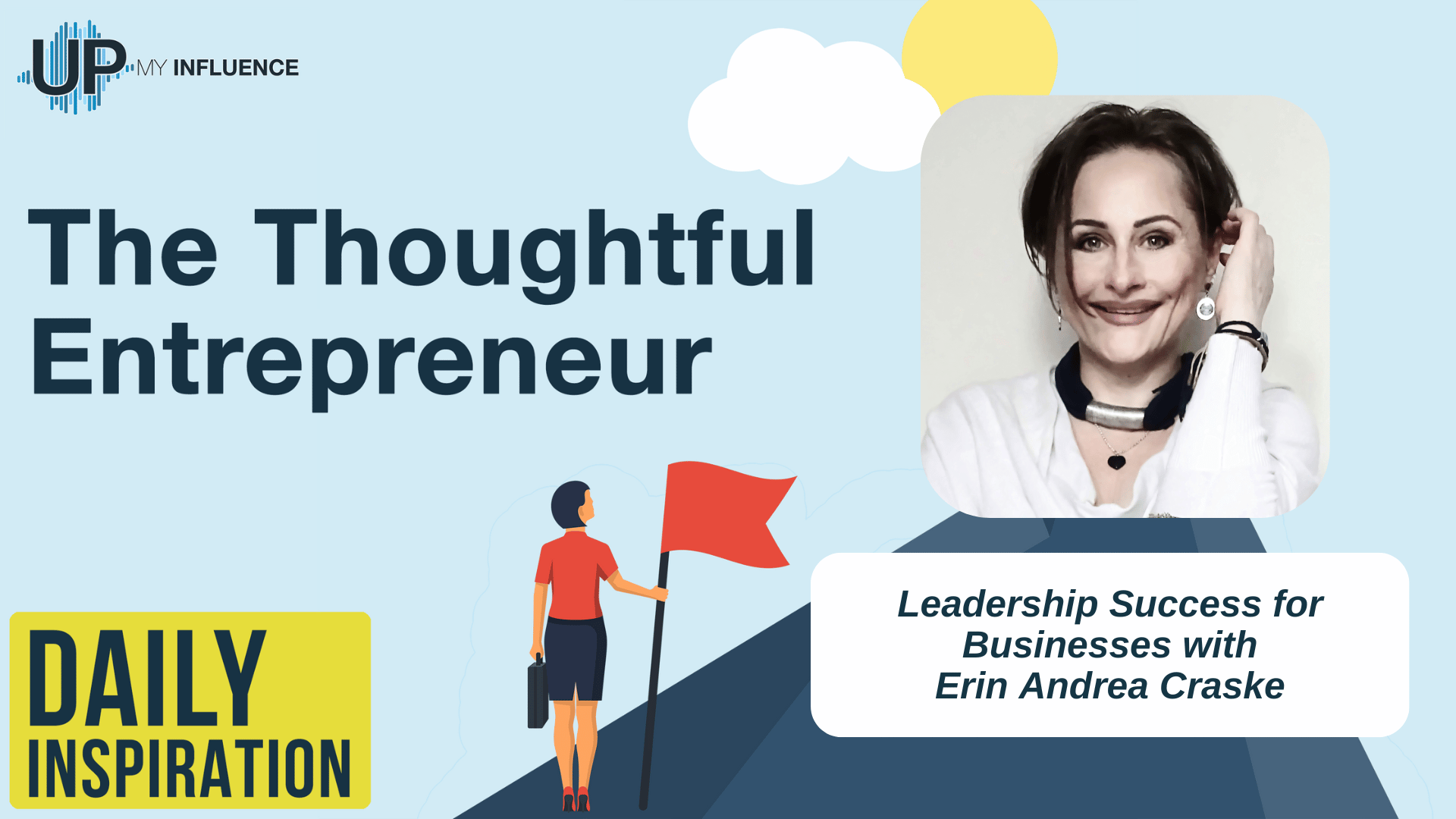THE THOUGHTFUL ENTREPRENEUR PODCAST
In this episode of the Thoughtful Entrepreneur, your host Josh Elledge speaks with the Business & Leadership Success Coach of Effortless, Erin Andrea Craske.

Erin Andrea Craske, a renowned business and leadership success coach, emphasized the critical intersection of purpose and business. She stressed that understanding one's ‘why' is essential for building a financially successful company that contributes positively to society. Erin detailed a process for discovering and integrating purpose into business models, aligning operations and strategies with a greater mission.
Leadership was another key theme. Erin provided strategies for cultivating leadership skills that resonate with teams and foster innovation and growth. She highlighted the importance of empathy, clear communication, and the ability to inspire others. These elements, she argued, are crucial for effective leadership and a dynamic, engaged workforce.
Key Points from the Episode:
- Business and leadership success coaching
- Transitioning from purpose to profit
- Strategies for achieving business success
- Overcoming challenges in entrepreneurship
- The importance of mindset in business
- Building a purpose-driven business
- Navigating the entrepreneurial journey
- Finding fulfillment and success in business
- Personal development and growth in leadership
- Creating a positive impact through business
About Erin Andrea Craske:
Erin Andrea Craske is a highly acclaimed strategist with an extensive 20-year career leading her to the Global Head of Consumer Brands role. She is an ICF-certified business and leadership success coach with 16 years of leadership experience. Erin specializes in strategic development, profitability, leadership, and communication, focusing on empowering businesses and prioritizing social good. She has managed 42 brands across 18 product categories in various sectors, including FMCG, B2C, B2B, and P2P, working in over 40 countries with significant budget responsibilities.
Erin combines transactional and transformational coaching techniques with NLP, mindfulness, art, and psychology in her transformational coaching practice. Her integration of philosophical wisdom, education, and business advisory services enhances this approach to create a lasting impact. Through her work, Erin seeks to help ethical leaders of positive-impact-driven businesses succeed financially and amplify their positive influence in the world. Her methods are designed to refine clients’ business and leadership skills, elevate their mindsets, and help them master their states of mind, ultimately enabling them to spread goodness through their products, teams, and communities.
About Effortless:
Effortless is a transformative coaching practice designed to empower ethical business leaders to grow profitable businesses with less effort. It helps them be their best selves, achieve success on their terms, and discover freedom and meaning in their personal and professional lives. The practice is rooted in over two decades of business strategy experience and life-altering insights. It specifically caters to ethical and purpose-driven leaders, guiding them from feelings of struggle, frustration, and overwhelm to states of effortless life, leadership, and business growth.
Based in the United Kingdom, Effortless extends its reach to English-speaking business leaders across Europe and North America. The founder, leveraging her substantial expertise, fosters a purposeful, genuine, and human-centered enterprise built on trust, respect, empathy, care, and integrity. The practice offers comprehensive transformational programs covering business growth, leadership, and life coaching, as well as business advisory, mentoring services, public speaking engagements, and educational initiatives, all designed to produce a positive ripple effect through clients' products, teams, customers, communities, and the environment.
Tweetable Moments:
05:47 – “Improving your processes and contribution on a daily basis leads to holistic business improvement. When things get better daily, it's inevitable that it will become profitable.”
Links Mentioned in this Episode:
Want to learn more? Check out Effortless’ website at
https://www.erinandreacraske.com/
Check out Effortless on LinkedIn at
https://www.linkedin.com/company/makeiteffortless/
Check out Erin Andrea Craske on LinkedIn at
https://www.linkedin.com/in/erinandreacraske/
Check out Erin Andrea Craske on Instagram at
https://www.instagram.com/erinandreacraske/
Check out Erin Andrea Craske on Youtube at
https://www.youtube.com/@erinandreacraske
Check out Erin Andrea Craske’s book “From Purpose To Profit“ at
https://www.amazon.com/Purpose-Profit-self-selling-effortless-profitability/dp/1805170872
Check out Erin Andrea Craske’s gifts for the listeners at
The gifts include:
– A gift of two full coaching sessions to the listeners
– A 50% discount on the strategy guide – all-in-one marketing toolbox – using EFFORTLESS code at the TGBBS checkout
– Freebies: business surveys, marketing frameworks, quotes, and strategy guide materials
More from UpMyInfluence:
We are actively booking guests for our The Thoughtful Entrepreneur. Schedule HERE.
Are you a 6-figure consultant? I’ve got high-level intros for you. Learn more here.
What is your #1 Lead Generation BLOCKER? Take my free quiz here.
Want to learn more about all the podcasts managed by UpMyInfluence? Opt in here.

